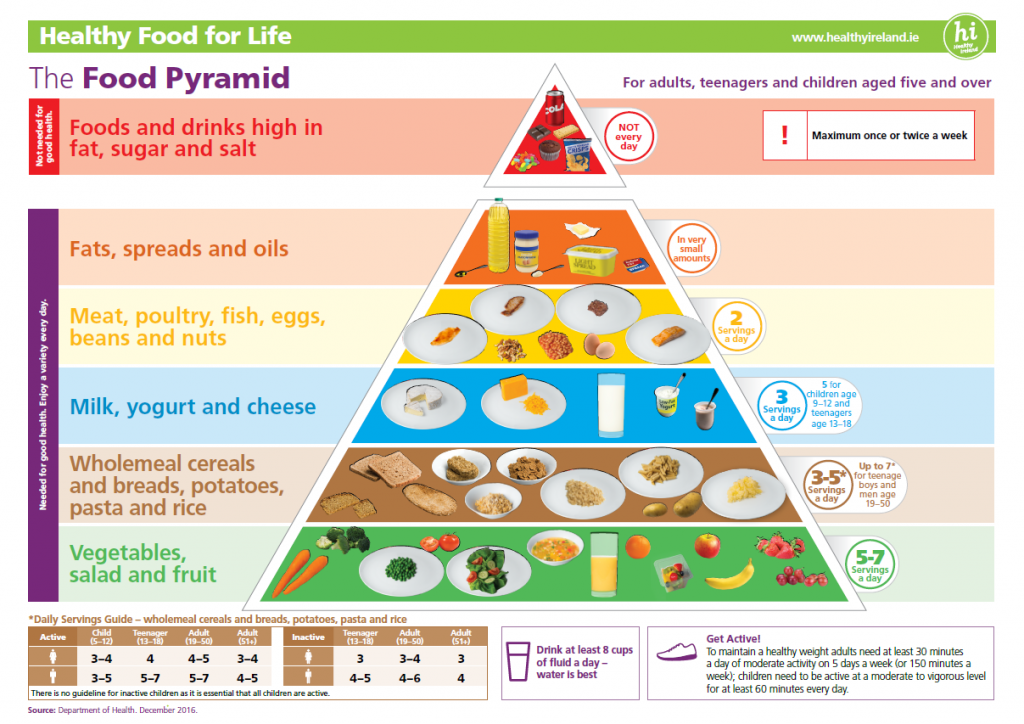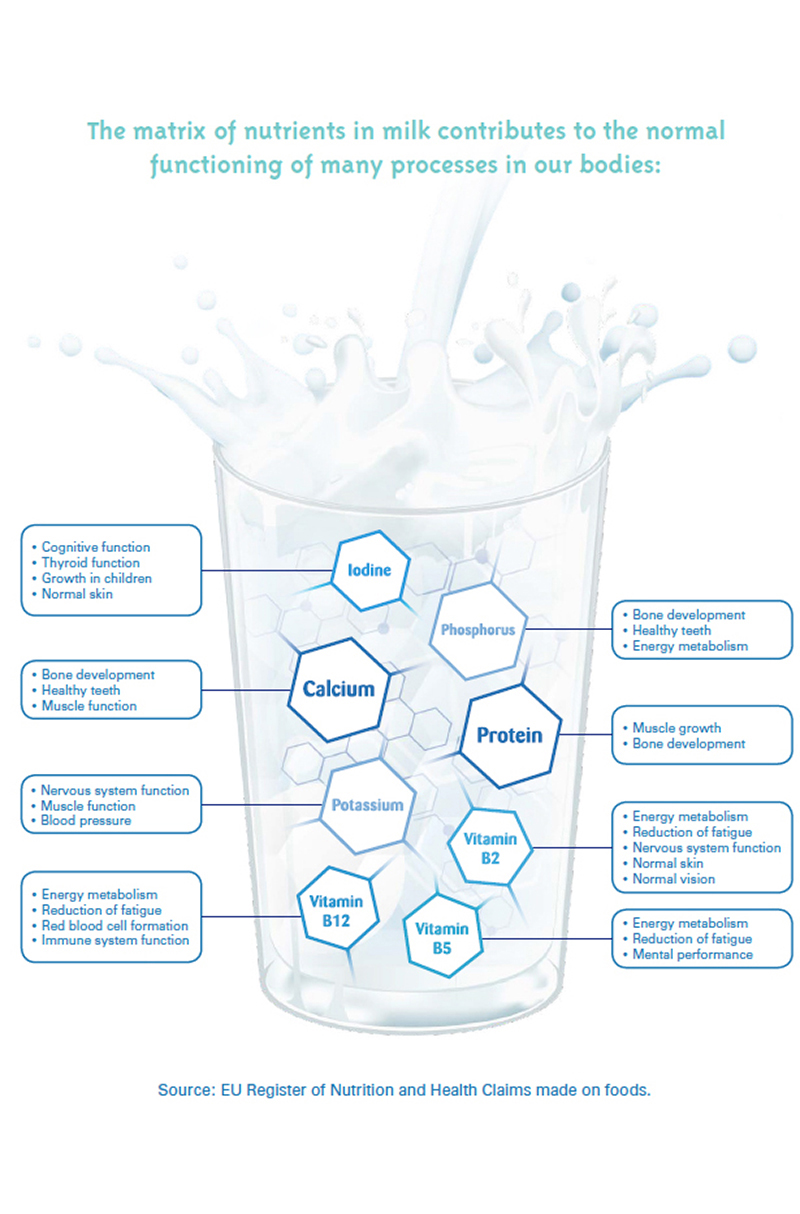Energy and nutrient needs vary depending on factors such as gender, age, body size and activity levels; as well as circumstances such as illness or recovery from surgery. Although our nutrient needs may vary at specific points throughout our life, a balanced diet forms the foundations of healthy eating. In Ireland, we use the Department of Health’s Food Pyramid as a guide to the types and amounts of foods needed for good health. The Food Pyramid divides foods into groups based on the main nutrients they provide. It also guides us on portion sizes and daily serving recommendations.
The Food Pyramid guidelines apply to the general healthy population. When needed, a dietitian may provide tailored dietary advice to meet your specific nutrient needs; particularly at times of illness, before or after surgery. For more information, download our booklet: Bone, Muscle & Joint Health – Nutrition & Orthopaedic Surgery

Along with a balanced diet and sufficient energy intakes, there are certain nutrients which play specific roles in our musculoskeletal health:
A variety of supplements such as vitamins, minerals, omega-3, glucosamine or chondroitin are often associated with musculoskeletal health. However, the best way to ensure you are getting the wide variety of nutrients that your body needs is to consume a balanced diet with a wide range of foods. As some substances can interact with medications, it is important to consult your GP before taking any supplements.
Dairy foods such as milk, yogurt and cheese provide many of the key nutrients that contribute to normal musculoskeletal health. Dairy is well recognised as a natural source of bioavailable calcium, which means that it is easy to absorb by the body. In addition, dairy foods contain a matrix of other nutrients which have important roles in health (see image). Dairy foods are versatile, nutritious and convenient foods that can be enjoyed across the day in meals and snacks, in cooking and baking. The Department of Health’s guidelines recommend three servings from the ‘milk, yogurt and cheese’ food group each day as part of a healthy, balanced diet. Between the ages of 9-18 years, five servings daily are recommended due to the importance of calcium during this life stage. Examples of one serving includes 200ml of milk, 125g of yogurt or 25g of cheddar-type cheese.
